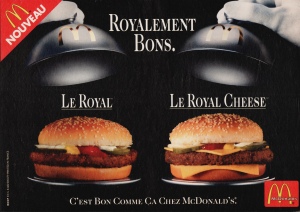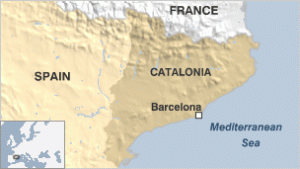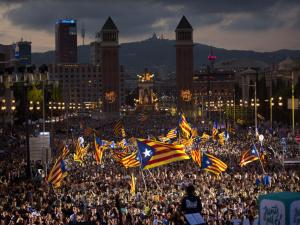In honor of primary season hitting full swing in the States with Super Tuesday today, I thought I would take the opportunity to turn your heads away from American politics and explain a little bit about what’s going on over on this side of the “Pond” in Spain’s politics.

Europe is like America in a lot of ways. They have basically the same stuff here that we do at home, but a lot of times, it’s just a little bit different. History, however, isn’t one of them. The history of Europe is much more complicated than that of America, although they do share some history together. What might be difficult for a lot of Americans to understand is the sheer number and diversity of cultures that have existed and still exist on the continent.
The modern geopolitical map of Europe isn’t static by any stretch of the imagination, nor has it ever truly been. Borders move. Names change. Entire peoples are uprooted from one place and deposited on another as refugees seeking new homes or asylum from tyrannical governments. America has never experienced such problem (with the major exceptions of the slavery issue and the displacement of Native American tribes), as most of us simply consider ourselves American, and our culture “Western“.
Spain, for example, has only been the nation that it is since the end of the Spanish Civil War in 1939. Francisco Franco united various autonomous regions under the banner of Spain. Prior to that, the geographic area that is now known as Spain consisted of a half dozen different countries with as many dialects or separate languages: including Basque, Leonese, & Catalan.

One such region is Catalonia.
Catalonia is in the northeastern most section of Spain, bordering France and the Mediterranean Sea. Barcelona, its capital city, is arguably the most economical prosperous market in the country. So last month, when Catalonia held elections, the rest of Spain held its collective breath. And Catalans, by a narrow margin (52% – 48%) elected a separatist president. Now, for the first time in three generations, Catalonia has a very good chance of becoming a sovereign state again.
So what does this mean for Spain? And what does it mean for the Catalan people?
Nobody is certain. The modern world is much different from the pre–WWII era in which Catalonia was its own nation. The EU is under threat of collapsing due to the influx of Syrian refugees. Greece is bankrupt, Italy is on their boot heels (no pun intended), and Spain’s been struggling with a recession for 4 years. If Catalonia (the most economically successful province in Spain) breaks off, then Spain might just enter their own great depression.

But for millions of Catalans, the issue isn’t about money. It’s about cultural identity. Under Franco, the people, their culture, and even their own language were subjugated and – in some instances – banned altogether in favor of the more widespread and accepted Castilian (textbook Spanish). Half of Catalonia wants that back. Can you blame them? I know Texans can’t.
We’ll have to sit back and wait to see if Catalonia’s new president, Carles Puigdemont, can lead his people to their freedom. He says he need 18 months. Until then, nobody knows.
Hasta La Proxima…
-Justin
Very interesting. We Americans do not really get it.